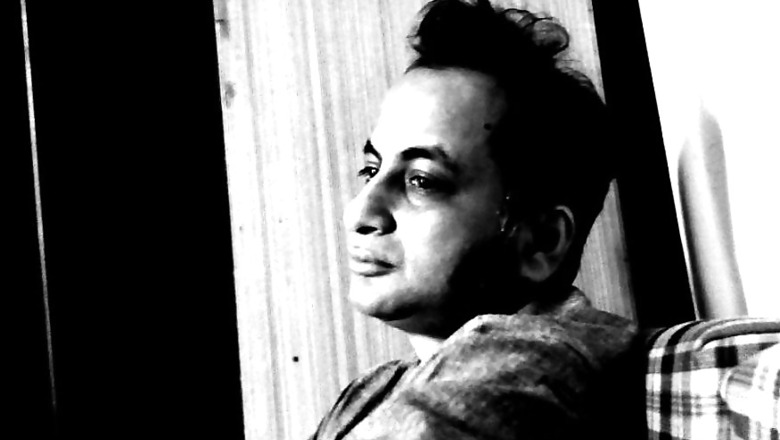
views
Delhi University professor Prasanta Chakravarty, who suffered several internal injuries after being kicked and punched in the stomach during the violence unleashed at the Ramjas college on 22 February by suspected members of Akhil Bharatiya Vidyarthi Parishad (ABVP), continues to receive life threats in the form of calls, messages and emails.
He has been receiving calls and messages from suspects, threatening him to leave the city if he wishes well for himself and his family. He has also been threatened to stay out of the protests and political battles in and around the campus.
But little does that dissuade him.
"We cannot sit quietly inside our homes, these incidents have pushed us in a direction where we cannot afford to stay bhadra"
"Succumbing to threats and fleeing is not the solution, there is no escape because wherever you go, you will have to face this climate. There is a wave of fascism across the globe. We have to be very strategic with our ideological framework. Liberal Idealism will not help us anymore." Prof. Chakravarty tells News18.com.
Ramjas College students with the support of members of the Left outfits, had called for a protest march against Delhi University Student’s Union and ABVP, the BJP’s student wing. When the members of the ABVP descended on the college to stop the march, the violent clashes, stone-pelting and mass assaults that followed left several teachers, students and journalists covering the incident injured. They were slapped, punched and kicked by policemen, all of them reportedly without nameplates.
Prasanta Chakravarty, who is an assistant professor in the Department of English, Delhi University, was admitted to Fortis Hospital after he suffered several injuries, and continues to face long-term abdominal issues, and will not be able to take classes for another one month.
The incident concerning his assault and other forms of violence that were witnessed in Delhi University ought to be approached from a wider perspective.
The incident was a result of precipitation of a condition and was not the first in recent times.
These clashes are being attributed to a highly tensed and ratcheted-up climate of manufactured polarisation in the campuses.
"It is about wresting political initiative around certain symbols, by deploying affective and rhetorical registers around a topography which is supposed to a be a place where ideas are tested," says Prof Prasanta Chakravarty.
Professor Chakravarty believes it is important to analyse what actually transpires in the universities leading to such volatility.
"The idea of jousting minds has never been isolated in our campuses. So, first of all, we have to have a matter-of-fact, strategic sense of what actually transpires in our universities. It is not merely about condemning violence from a position of empathy and argument but to first understand the background of the poisonous polarisation of our spaces of education." he says.
They have been trying to forge a different climate but their number remains small, even though their role is confined to just resisting rather than deciding the agenda of the day. More tellingly, there is a sense of fragmentation and isolation among such forces, so that even basic security to this group is never ever ensured.
“This dissociation of sensibility has been telling for a campus life which is largely anyway hierarchical, clandestine and coterie bound. “ says Prof Chakravarty.
He believes that campuses are places from which a new language and a new ideology could indeed develop, primarily coming from the student community. That new language seems to be fed up with violence and a climate of rank intimidation.
What needs to be done to fight this climate of violence?
# Such mobilizations should not just become merely a series of events but take a much longer and real perspective of how political battles are fought gradually, especially forms of political organization have to be studied afresh.
# The students actually must participate in the electoral process and must not detach themselves from their times. They do not have to rely on abstract jargon if their ideas are tested at the ground level.
# The idea of being apolitical and objective is not going to last for long. We are passing through a time that demands that we think through issues rigorously and take strong positions rather than be wishy-washy.
# The intellectual sophistication of the argumentative approach must also be deeply cognizant of the popular grievances and the nature of such grievances.
Cognizance of what has been unfolding in other campuses of smaller cities and towns of the nation is just as important as the political and academic moves in and around the campuses of the national capital.
In towns like Banaras, Vadodara, Gaya, Aligarh, Bardhaman and Thiruvananthapuram the situation is completely handed over to organised mobs and to a culture of homogeneity.
"These places have in the past witnessed political battles, virtual and real, that not just lacked nuance but also had no garb of any rational discourse. There is hardly any media coverage about such places. But it is important to look into all these places because only then can we have a larger sense of the structural changes that are being affected right now in our campuses and how battle lines could be drawn and joined", says Prof Chakravarty.

















Comments
0 comment